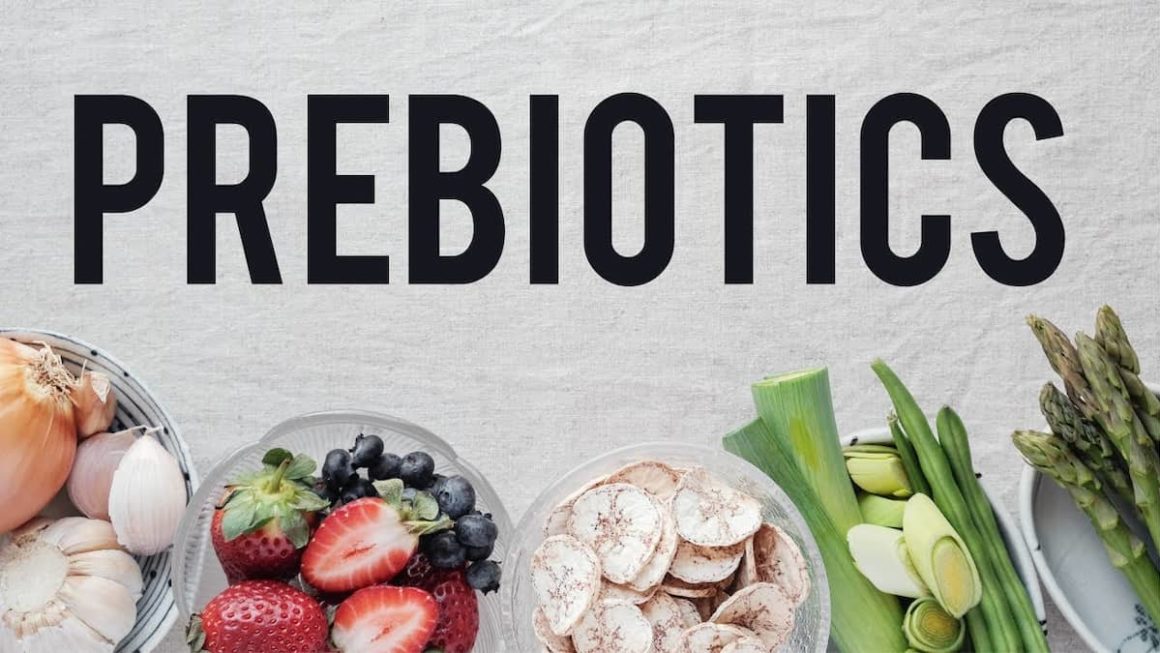In today’s fast-paced world, maintaining good health has become a top priority for many individuals. From fad diets to trendy superfoods, people are constantly searching for ways to improve their overall well-being. However, one crucial aspect of nutrition that often goes overlooked is prebiotic fiber. This non-digestible dietary component plays a significant role in promoting a healthy gut microbiome, which is essential for various physiological processes. In this comprehensive article, we will delve into the sources, supplements, and extensive health benefits associated with prebiotic fiber consumption.
Sources of Prebiotic Fiber
Prebiotic fiber is abundantly found in a diverse range of plant-based foods. These fibers are not digested by our bodies but instead act as nourishment for beneficial bacteria residing in our digestive tracts. Here are some notable sources of prebiotic fiber:
Fruits
Fruits are not only delicious but also packed with essential nutrients and prebiotic fiber. Bananas, apples, pears, berries, and melons are all excellent sources of prebiotic fiber. For example, a medium-sized banana contains approximately 3 grams of prebiotic fiber, making it a convenient and tasty way to boost your intake.
Vegetables
Vegetables are an essential part of a healthy diet and are also rich in prebiotic fiber. Artichokes, asparagus, broccoli, onions, garlic, and beans are all excellent sources of prebiotic fiber. These vegetables also provide a wide range of vitamins, minerals, and antioxidants, making them a valuable addition to any meal.
Legumes
Legumes, such as lentils, chickpeas, peas, and beans, are not only a great source of plant-based protein but also contain high amounts of prebiotic fiber. For example, a cup of cooked lentils contains approximately 8 grams of prebiotic fiber, making it an excellent choice for vegetarians and vegans looking to increase their intake.
Whole Grains
Whole grains are another fantastic source of prebiotic fiber. Oatmeal, brown rice, quinoa, and whole wheat bread are all excellent options for incorporating more prebiotic fiber into your diet. These whole grains also provide a good amount of complex carbohydrates, which are essential for sustained energy levels.
Nuts and Seeds
Nuts and seeds not only make for a convenient and healthy snack but also contain high amounts of prebiotic fiber. Almonds, walnuts, chia seeds, and flaxseeds are all excellent sources of prebiotic fiber. They also provide healthy fats, protein, and various vitamins and minerals, making them a well-rounded addition to any diet.
Prebiotic Fiber Supplements

While consuming prebiotic-rich foods is essential, supplementing with prebiotic fiber can be beneficial for those with insufficient intake or specific health conditions. Prebiotic fiber supplements come in various forms, including powders, capsules, and gummies. Here are some popular prebiotic fiber supplements on the market:
Inulin
Inulin is a type of prebiotic fiber found in many plants, such as chicory root, onions, and garlic. It is commonly used as a supplement to boost prebiotic fiber intake. Inulin has been shown to improve digestive health, support weight loss, and enhance immune function.
Fructooligosaccharides (FOS)
FOS is a type of prebiotic fiber found in many fruits and vegetables, including bananas, onions, and asparagus. It is often used as a supplement to promote the growth of beneficial bacteria in the gut. FOS has been linked to improved digestion, reduced inflammation, and enhanced immune function.
Galactooligosaccharides (GOS)
GOS is a type of prebiotic fiber found in human breast milk and some plant-based foods, such as legumes and whole grains. It is commonly used as a supplement to support the growth of beneficial bacteria in the gut. GOS has been shown to improve digestive health, reduce inflammation, and enhance immune function.
Prebiotic Fiber for Specific Health Conditions
In addition to promoting overall health, prebiotic fiber consumption has been linked to various specific health benefits. Here are some notable conditions that may benefit from increased prebiotic fiber intake:
Digestive Health
Prebiotic fiber plays a crucial role in maintaining a healthy gut microbiome, which is essential for proper digestion. A balanced gut microbiome can help prevent digestive issues such as constipation, diarrhea, and bloating. Additionally, prebiotic fiber has been shown to improve the symptoms of irritable bowel syndrome (IBS) and inflammatory bowel disease (IBD).
Immune Function
The gut microbiome also plays a significant role in our immune system. Beneficial bacteria in the gut help protect against harmful pathogens and boost immune function. Prebiotic fiber promotes the growth of these beneficial bacteria, thus enhancing our body’s ability to fight off infections and illnesses.
Weight Management
Research suggests that prebiotic fiber may play a role in weight management. Studies have shown that prebiotic fiber can increase feelings of fullness, leading to reduced calorie intake and potential weight loss. Additionally, prebiotic fiber may also help regulate blood sugar levels, which can be beneficial for individuals with diabetes or those at risk of developing it.
Mental Health
The gut-brain axis is a complex connection between our gut and brain, and research has shown that the gut microbiome can influence our mental health. Prebiotic fiber consumption has been linked to improved mood, reduced anxiety, and enhanced cognitive function. This is because beneficial bacteria in the gut produce neurotransmitters that can affect our brain’s functioning.
Nutritional Powerhouses The Healthiest Fruits to Fuel Your Body
In conclusion, prebiotic fiber is a vital component of a healthy diet and plays a crucial role in maintaining optimal health. It is abundantly found in various plant-based foods and can also be supplemented for those with insufficient intake or specific health conditions. Prebiotic fiber has numerous benefits, including improved digestive health, enhanced immune function, weight management, and mental well-being. By incorporating prebiotic fiber into our diets, we can support a balanced gut microbiome and promote overall health and wellness. So next time you reach for a snack, consider choosing one that is rich in prebiotic fiber to nourish your body from the inside out.


